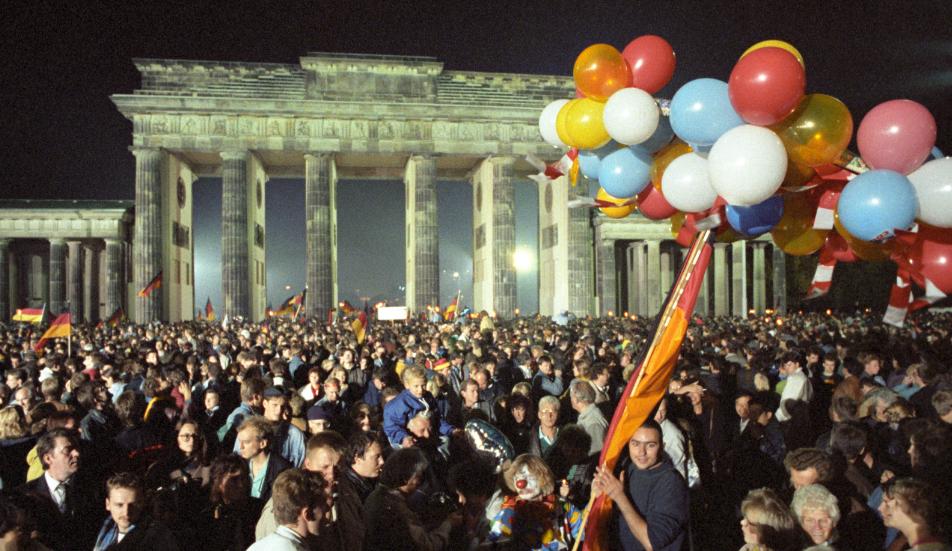Germany is a nation with a rich history and culture, and one of the most important ways in which this is celebrated is through its national holidays. Among these is the German National Holiday, which is celebrated annually on October 3rd. In this article, we will take a closer look at the history and significance of this day, as well as how it is celebrated across the country.
Overview of the Germany National Holiday
The German National Holiday, also known as the Day of German Unity (Tag der Deutschen Einheit), is a national holiday that commemorates the unification of East and West Germany in 1990. After the fall of the Berlin Wall in 1989, negotiations began between the two sides to reunify the country, and on October 3rd, 1990, the reunification was officially completed. This day is therefore a celebration of both the country's reunification and its continued progress since then.
History of the Germany National Holiday
The history of the German National Holiday can be traced back to the end of World War II, when Germany was divided into two separate states: the Federal Republic of Germany (West Germany) and the German Democratic Republic (East Germany). The two states were divided by the Berlin Wall, which stood as a symbol of the Cold War and the ideological divide between the Western powers and the Soviet Union.
In the decades that followed, the relationship between East and West Germany remained tense, with occasional outbreaks of violence and conflict. However, by the late 1980s, the Soviet Union was facing increasing pressure from within and without, and the situation in East Germany became increasingly unstable. This culminated in the fall of the Berlin Wall on November 9th, 1989, which marked the beginning of the end of the Cold War and the reunification of Germany.
Significance of the Germany National Holiday
The German National Holiday is a day of both celebration and reflection. On the one hand, it is a day to celebrate the country's reunification and the progress that has been made since then. Germany has become one of the most prosperous and influential nations in the world, and has played a key role in shaping the political, economic, and cultural landscape of Europe and beyond.
At the same time, the day also serves as a reminder of the challenges that Germany has faced in its recent history, including the legacy of the Nazi regime and the divisions that existed within the country during the Cold War. It is therefore an opportunity to reflect on the lessons of the past and to reaffirm the country's commitment to democracy, human rights, and social justice.
Celebrations of the Germany National Holiday
The German National Holiday is celebrated across the country in a variety of ways. Many cities and towns hold parades and other public events, featuring music, dancing, and traditional costumes. There are also fireworks displays, and many people take the day off from work to spend time with friends and family.
One of the most important traditions of the day is the raising of the German flag, which is accompanied by the singing of the national anthem, "Einigkeit und Recht und Freiheit" ("Unity and Justice and Freedom"). This is usually done at noon, and is followed by a speech from the President of Germany, who reflects on the significance of the day and its meaning for the country.
Conclusion
The German National Holiday is a day of celebration and reflection, marking the reunification of East and West Germany and the progress that has been made since then. It is a time to reflect on the challenges of the past and to reaffirm the country's commitment to democracy, human rights, and social justice. Whether through parades, speeches, or time spent with friends and family, the day is an opportunity for Germans to come together and celebrate their shared history and culture.
FAQs
- Is the German National Holiday a public holiday?
Yes, the German National Holiday is a public holiday in Germany, which means that many businesses and government offices are closed for the day.
- What is the significance of the German flag?
The German flag, which features the colors black, red, and gold, is a symbol of the country's unity and democratic values. It has been used in various forms since the 19th century.
- How is the German National Holiday celebrated in Berlin?
Berlin is the capital of Germany, and is therefore one of the most important cities for the celebration of the German National Holiday. The city hosts a variety of events and festivities, including a street festival and a concert at the Brandenburg Gate.
- How has Germany changed since reunification?
Since reunification, Germany has undergone significant political, economic, and social changes. The country has become a major player on the global stage, and has played a key role in shaping the European Union and other international organizations.
- How does the German National Holiday compare to other national holidays?
Every country has its own unique national holidays, but the German National Holiday stands out for its celebration of unity and progress. It is a reminder that even in the face of significant challenges, countries can come together and overcome their differences to create a better future for all.
References
- "German Unity Day." Time and Date. Accessed April 7, 2023. https://www.timeanddate.com/holidays/germany/german-unity-day.
- "Germany's National Day." Germany.info. Accessed April 7, 2023. https://www.germany.info/us-en/embassy-consulates/newyork/-/2041900.
- "Germany Celebrates Its National Day on 3 October." DW.com. Accessed April 7, 2023. https://www.dw.com/en/germany-celebrates-its-national-day-on-3-october/a-50619736.
